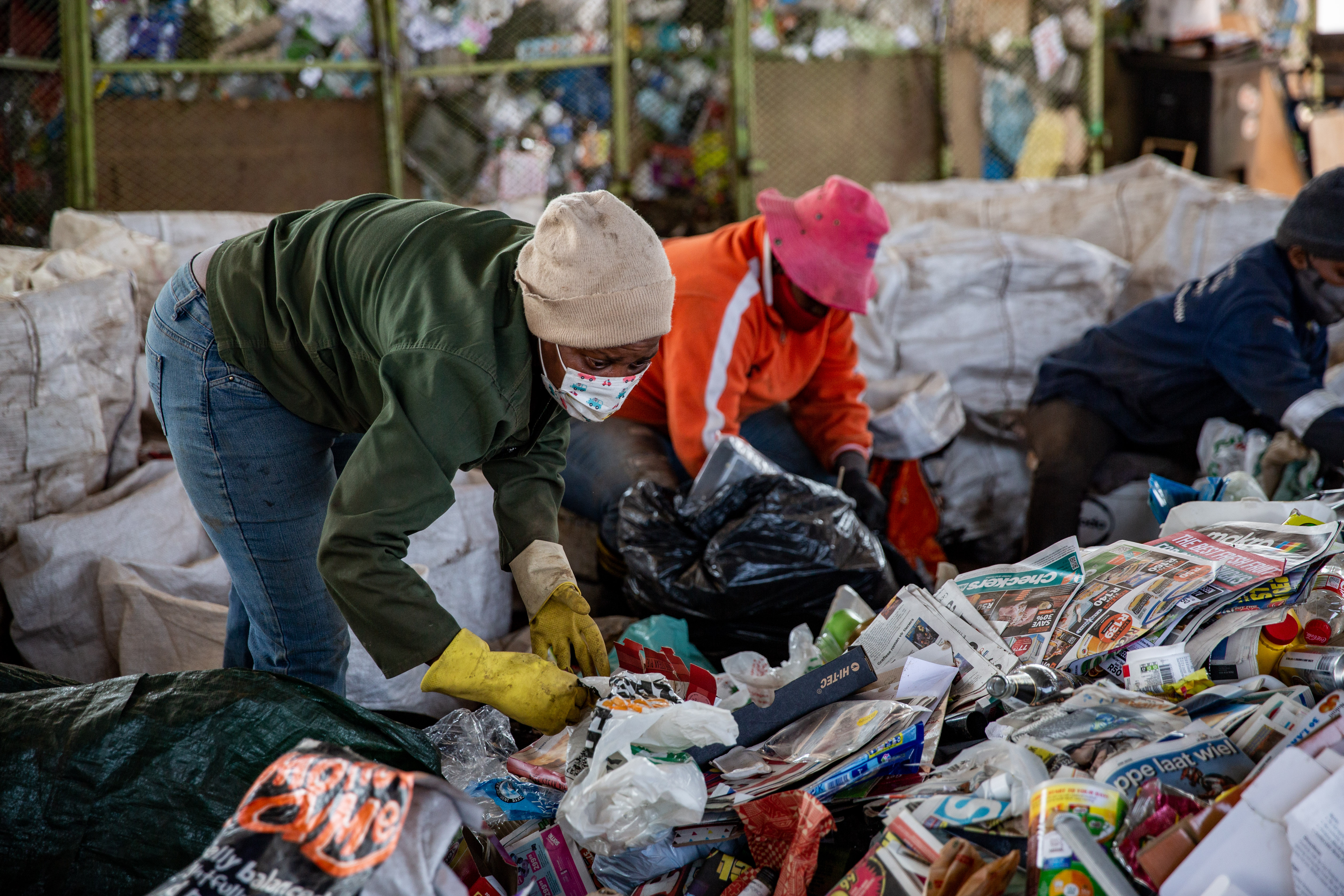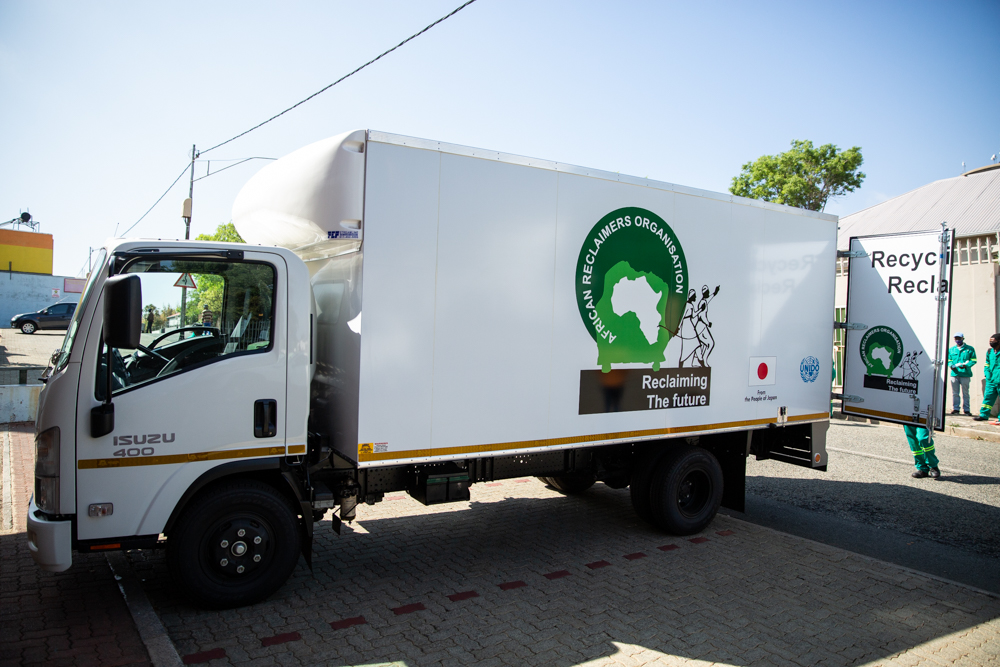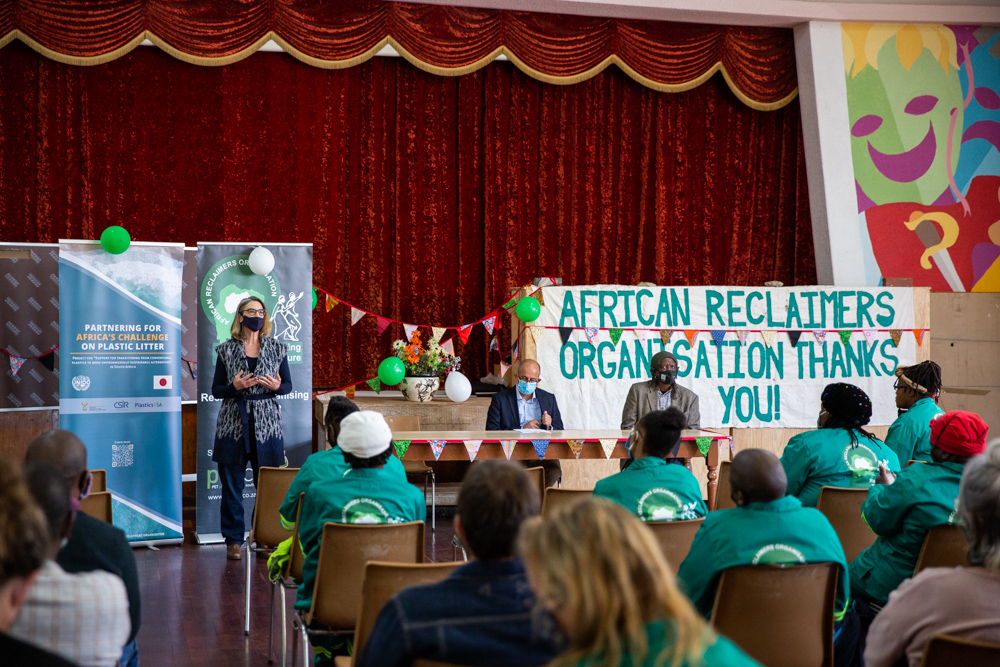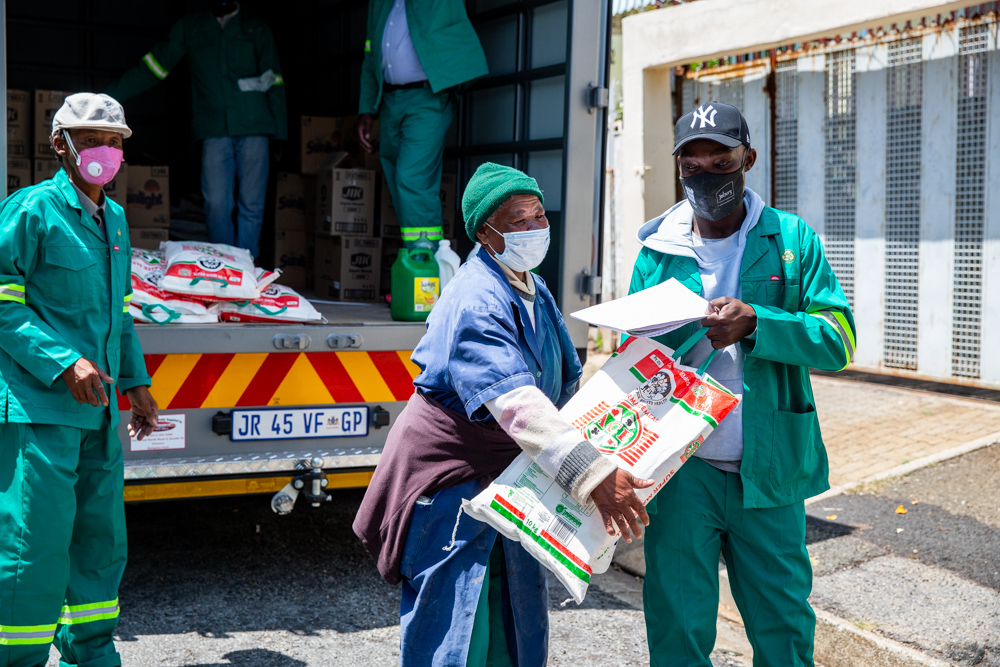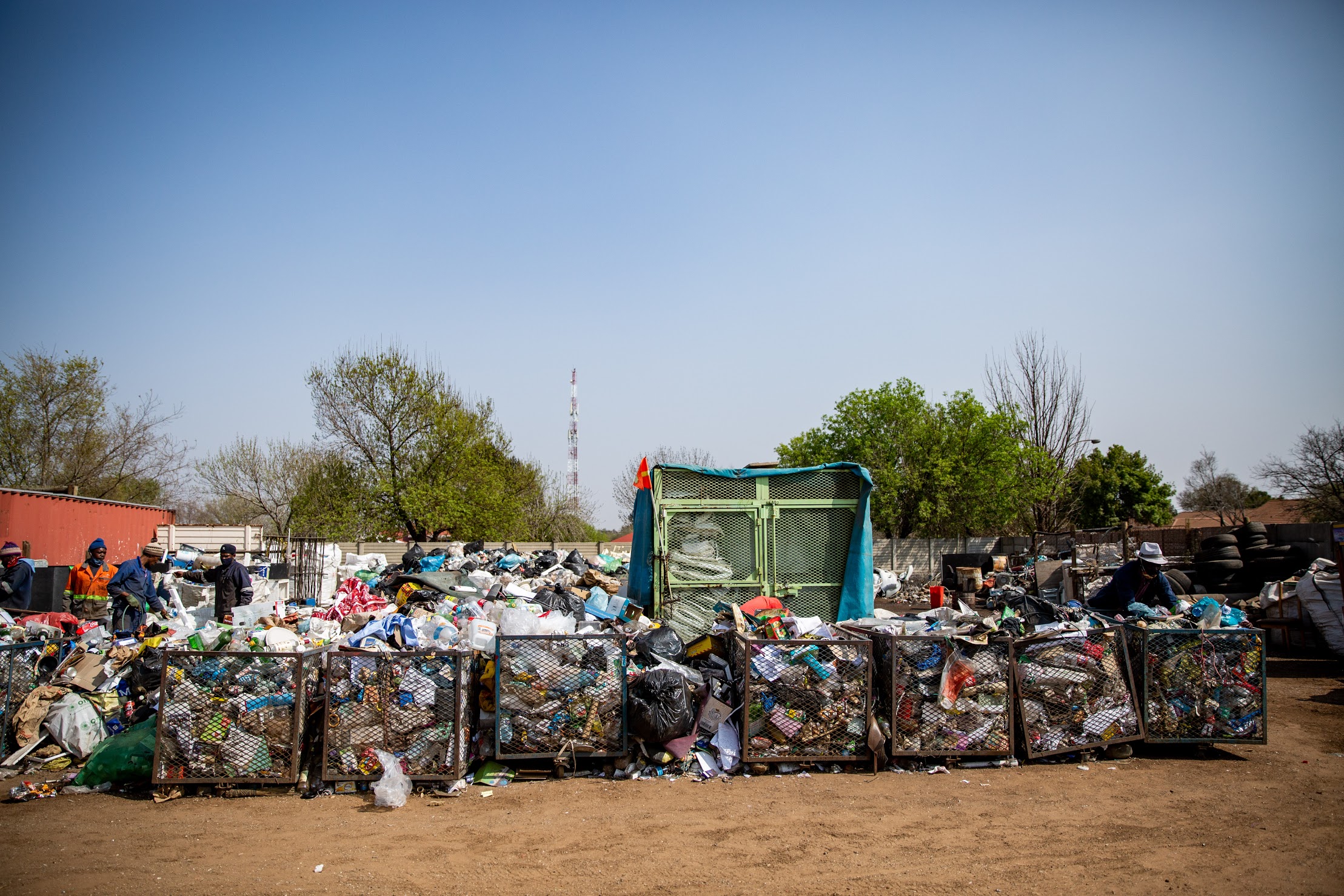

Helping South Africa’s waste pickers face the COVID-19 crisis and beyond
24 November 2020 Tebogo Maleka and Petronella DeWet
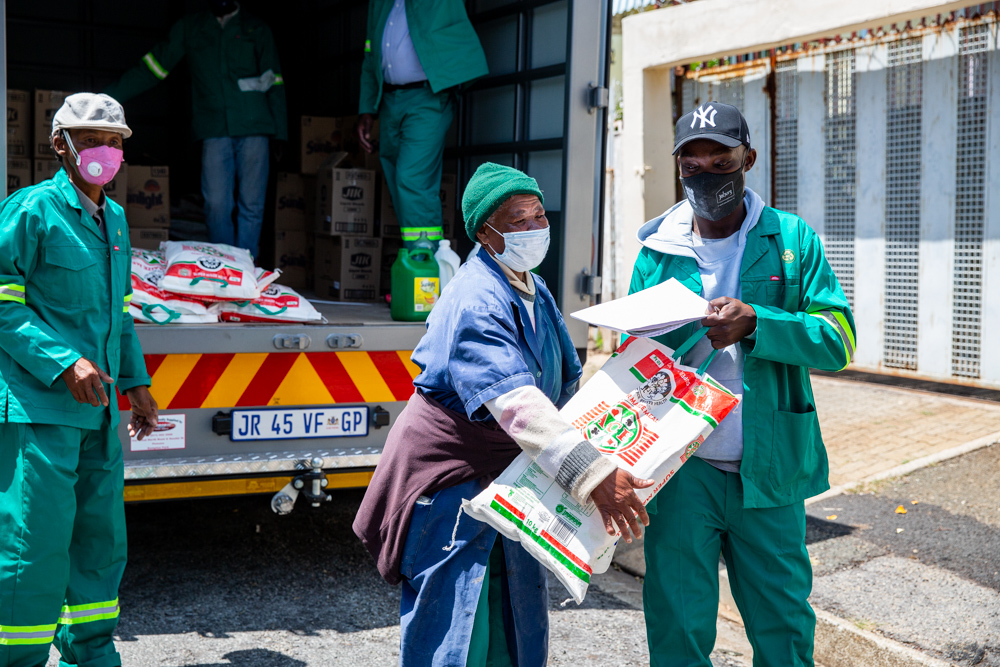
By Tebogo Maleka and Petronella DeWet
South Africa has more than 60,000 waste pickers who play a substantial role in the waste management industry of the country, collecting 80 to 90% of used recyclables collected on an annual basis. As one of the most vulnerable communities in the country, they were profoundly affected by the COVID-19 pandemic and the subsequent lockdown. Under the stringent level 5 lockdown regulations, their daily earnings were impacted by the restrictions on movement. Since the lifting of these restrictions, they have been exposed to the increasing risks from handling waste that could be contaminated by the coronavirus.
The United Nations Industrial Development Organization (UNIDO) has responded to the situation by working with stakeholders to provide personal protective equipment (PPE) to members of the South African Waste Pickers Association (SAWPA) at four integration sites in the Free State, KwaZulu-Natal, and the Western Cape earlier this year. Sixty per cent of the waste pickers at the four participating sites are women.
The PPE consists of work jackets and trousers, masks, gloves and work boots. UNIDO also donated a four-ton truck to contribute to a safer and more secure working environment for waste pickers.
These initiatives are some of the results of the US$136 million flash appeal launched by the United Nations in South Africa in April 2020, which aims to assist up to 10 million people in vulnerable communities facing various risks caused by the COVID-19 pandemic. The UNIDO initiatives fall under the UN Environment-led National Stakeholder Platform aimed at expanding activities on safety and security for healthcare waste management during the pandemic

The donation of PPE and the truck is part of a UNIDO project supporting the transition from conventional plastics to more environmentally sustainable alternatives in South Africa. The project is funded by the Government of Japan and executed jointly with partner institutions in the country, including the University of the Witwatersrand (Wits), the Council for Scientific and Industrial Research (CSIR), the Department of Environment, Forestry and Fisheries (DEFF). One of the outputs of the project is specifically designed to support waste picker integration by ensuring that the role of waste pickers is formally recognized and valued, and that they are integrated into the design and implementation of separation at source and other recycling initiatives.
Simon Mbata, chairman of the South African Waste Pickers Association (SAWPA), says that the donation of PPE has brought dignity to waste pickers, who now have the respect of their communities as recognized workers in the waste recycling system. He added that it also lays the foundation for future development.
Eli Kodisang, organizer of the African Reclaimers Organization (ARO), explains that the truck will contribute towards the expansion of separation-at-source activities and to an increase in collection rates of recyclable materials. It will also reduce the risk of accidents associated with pulling a trolley, especially for elderly women, and limit exposure to contaminated waste material.
Kodisang says that the truck has already made a huge difference in ARO’s work and has opened new areas of opportunity for collecting recyclable materials. “It might just be a truck to other people, but for us it is opening a road to unlimited opportunities.”

According to Melanie Samson, senior lecturer in Human Geography at Wits, the UNIDO and other UN initiatives have made important contributions to supporting waste pickers in the context of the COVID-19 crisis and beyond. She explains that the UNIDO project was designed to complement and strengthen initiatives by the South African government, industry and waste reclaimer organizations in a way that advances the implementation of the National Guideline on Waste Picker Integration.
She says, “Because the UNIDO donations directly respond to needs articulated by waste-picker organizations, they give life to the Guideline principle that reclaimers must lead the way in defining and implementing integration and firmly entrenched this principle as we move forward with implementing integration.”
Japan’s Ambassador to South Africa, Norio Maruyama, says that the project has provided both Japan and UNIDO with the opportunity to join the collective effort to support South Africa, and especially the most vulnerable sectors, in the fight against COVID-19. He expresses confidence in the ability and scientific expertise of researchers in both Japan and South Africa, through UNIDO, to find new materials as alternatives to single-use plastics as the next step in the project.
The Resident Coordinator of the UN in South Africa, Nardos Bekele-Thomas, says that the UNIDO/Japan project has the potential to reduce plastic leakage into the environment and unlock new economic opportunities. “It provides endless possibilities for eradicating poverty, safeguarding the environment and creating shared prosperity which is greatly needed by South Africa.” She emphasizes the importance of charting a new, more inclusive and sustainable path, moving away from the “take, make, use and dispose model” that has been dominant among rich countries for many years. “The current crisis presents developing countries with a window of opportunity for change that should be fully grasped.”
Bekele-Thomas believes that the strong cooperation between UNIDO and the government of Japan can help build an inclusive industry that ensures that no one gets left behind. She says it is “a cooperation that can indeed lead us to a more rapid transition to a new economy; one that draws from new technologies and innovation and that is increasingly decarbonized, less wasteful and more democratic in our decisions on how we produce, distribute, consume and recycle.”
